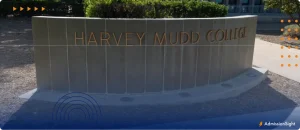The Upcoming and Rescheduled Dates for the ACT:
The ACT, or the American College Test, is a universal examination that aims to offer insight into students’ education during the application and admissions process. The ACT test dates offer a wide range of dates throughout the 2019-2020 academic school year. While a few of those dates have already passed, along with the rescheduling of the April 4th test date due to the recent social distancing measures enacted throughout the country, the two remaining dates for the ACT for the 2020 year are:
- June 13th, 2020
- July 18th, 2020
The ACT, unlike the SAT, allows for subject-specific testing and is recommended by almost every major college and university in the country. The test provides students the ability to demonstrate their skills in four main subject areas:
- English
- Mathematics
- Reading
- Science Reasoning
While the SAT is a more generalized approach to testing, the ACT adds several additional subject fields that can help diversify the results and improve the scores of tests.
While circumstances and dates for the ACT have been subject to change during the country’s unexpected COVID-19 pandemic, such as the rescheduling of the April 4, 2020 test date to the June 13, 2020 date, a record number of top schools are requiring the ACT in addition to the SAT. Some of these schools include:
- Carnegie Mellon University
- Syracuse University
- Yale University
- Georgetown University
- University of Pennsylvania
The ACT has also released its anticipated testing schedule for the 2020-2021 academic year. Those dates include:
- September 12, 2020
- October 24, 2020
- December 12, 2020
- February 6, 20201
- April 10, 2021
- June 12, 2021
- July 17, 2021
For students who wish to plan ahead, or take multiple ACT tests throughout their high school career, the ACT website has also released projected dates for the 2021-2022 academic year. These dates include:
- September 11, 2021
- October 23, 2021
- December 11, 2021
- February 5, 2022
- April 9, 2022
- June 11, 2022
- July 16, 2022
Much like the SAT, each test is scheduled on Saturdays to minimize any scheduling conflicts.
There have also been certain schedule changes due to the recent COVID-19 pandemic and the resulting Safer at Home policies. These include the rescheduling of the April 4, 2020 test and the offering of refunds, fee-waivers, and free rescheduling options in certain circumstances. A further list of updates as well as answers to questions related to the Coronavirus updates can be found on the ACT website.
Registration:
Prior to taking the exam, the ACT has certain registration deadlines. The last registration deadlines for the 2019-2020 academic year are coming up on
- May 8, 2020
- With a Late Deadline of May 22, 2020
- June 19, 2020
- With a Late Deadline of June 26, 2020
The ACT offers an additional week-long grace period after these deadlines, but they require a late fee of 30.00. In the case of same-day standby testing, a 55.00 fee is added for students. There is also an additional 32.00 fee to change a pre-registered test date or to switch to another preferred testing center location.
Many of these fees are being waived through the ACT website during this academic year due to changes in scheduling as a result of the COVID-19 pandemic. A complete list of the possible fees, as well as a list of who qualifies for fee waivers, can also be found on the ACT website.
The registration dates for the 2020-2021 academic year have also been laid out on the ACT Website. These dates include:
- August 7, 2020
- Late Deadline: August 21, 2020
- September 20, 2020
- Late Deadline: October 4, 2020
- November 6, 2020
- Late Deadline: November 20, 2020
- January 8, 2021
- Late Deadline: January 15, 2021
- March 5, 2021
- Late Deadline: March 19, 2021
- May 7, 2021
- Late Deadline: May 21, 2021
- June 11, 2021
- Late Deadline: June 25, 2021
The ACT website has also offered projected dates for registration well into the 2021-2022 academic year. These dates follow a similar schedule of the 2020-2021 year and include:
- August 6, 2021
- Late Deadline: August 20, 2021
- September 19, 2021
- Late Deadline: October 3, 2021
- November 5, 2021
- Late Deadline: November 19, 2021
- January 7, 2022
- Late Deadline: January 14, 2022
- March 4, 2022
- Late Deadline: March 18, 2022
- May 6, 2022
- Late Deadline: May 20, 2022
- June 10, 2022
- Late Deadline: June 24, 2022
Practice and Preparation:
The ACT website offers a variety of practice tests and tips for each section of the exam. There are also many study tools available, including on the AdmissionSight site, to help during ACT preparation and the college admissions process.
The Test:
Testing centers for the ACT include high schools, colleges, career schools, and a variety of other locations, making the test easy and accessible throughout the country.
There have been several additions and updates to the ACT as recently as September of 2018. If your school or district does online testing, or if you are taking the ACT test abroad, the ACT offers what is called the ACT-CBT or ACT Computer-Based Test. While these online options are allowed, similar rules and regulations apply, including their completion at a testing center under the supervision of a proctor.
The test itself is broken up into four sections, much like the SAT, with the inclusion of an optional Essay and writing portion.
English:
The first subject covered on the ACT in English, consisting of 75 multiple-choice questions. The length of this section is 45 minutes and covers a range of subjects including:
- Grammar
- Punctuation
- Sentence Structure
- Rhetorical Skills
The English section of the exam has the lowest scoring average of any other section on the test. As a result, this section might require further preparation. The ACT website provides a study guide with tips and rules to consider when taking the English portion of the exam such as:
Four C’s:
- Complete Sentences: Good Writing should be in complete sentences
- Consistency: Everything, both written and multiple-choice should be consistent
- Clear: The meaning, importance, and analysis should be clear
- Concise: The Best answers, free of all errors, should be concise
Additional study material to improve writing and reading comprehension can be found on the AdmissionSight website.
Math:
The second section of the ACT covers a variety of Math-related subjects and is broken up into several categories and topics including:
- Algebra I
- Algebra II
- Geometry
- Trigonometry
The math portion differs from the SAT by including certain trigonometry problems and avoiding more generalized problem-solving questions. The ACT also focuses on coordinate and plane geometry and provides slightly less distributed time, about one minute per problem. The benefit of the ACT math section compared to the SAT’s is the ability to use a calculator during the entirety of the exam.
While the ACT permits the use of a calculator, they also have certain stipulations as to which brands and models are acceptable. Calculators with a built-in or downloaded computer algebra system are prohibited such as the popular TI-89 and the TI-92 models. There are also several Hewlett-Packard models such as the HP Prime and the HP 48GII which are also prohibited during the ACT. A further guideline for calculator-specific questions can be found on the ACT’s website.
Reading:
The third section of the ACT focuses on reading comprehension and consists of 40 multiple choice questions, giving students a total of 35 minutes to answer them.
With less than a minute attributed to each question, this section appears to be the most challenging on time for students. But with many ways to combat time-related nervousness, it is imperative to remember two key factors:
There are only four reading comprehension passages.
They are broken down into :
-
- Prose Fiction
- Social Studies
- Humanities
- Natural Sciences
There are ten questions attributed to each section:
The ACT provides students the ability to write directly on their exams, including the passages in the reading section. AdmissionSight offers helpful hints relating to this unique ability. They include:
- Underlining Key Information
- Exploring the Author’s Point of View
- Circling Vocabulary to Provide Context
- Science:
Science is the last mandatory section of the ACT. Like the reading portion, the science section is also 40 multiple choice questions and has a 35-minute time limit. The questions are diverse in their content and cover concepts and passages that include:
- Graphs
- Charts
- Tables
- Research Summaries
- Other topics of interest
A complete list of helpful tips and guidelines for this section is also available on the ACT website.
Writing:
The last, optional portion of the ACT is the writing section which requires a single essay in a 40-minute time limit. These 40 minutes are best utilized by distributing time between
- Preparation
- Outlining
- Writing
- Editing
Further tips on writing can be found on the AdmissionSight website.
While the writing portion is optional, many schools recommend submitting results for this section of the test. These schools include:
- Abilene Christian University
- Berry College
- Duke University
Results:
After the stress of the exam subsides, the real stress begins to appear: the waiting period for results. Compared to the SAT’s 15 days waiting period for results, the ACT offers quicker feedback, posting results online within 10 days after the exam. For example, students who took the ACT on the upcoming May 8, 2020 date are guaranteed to have results available between May 9 – May 22, 2020.
While the ACT does not provide the formal SAT Score Choice option, students still have the ability to choose which ACT results in their prospective colleges can see.
Each ACT test taken provides a separate score report.
While this allows for some confusion when comparing multiple ACT results for specific sections, it does hide the number of total tests taken when submitted to colleges or universities. This allows students to take the ACT up to the maximum number of 12 times without most colleges or universities knowing how many times the test was attempted.
The dates for sending these results differ widely between universities. In certain cases, if a student has opted for one of the later testing dates, such as the June or July testing dates, the results can be sent to universities after your application has been submitted. Fortunately, this allows for retests on the ACT up until the point of acceptance in certain situations.
There is no financial penalty for re-tests for the ACT, but each situation requires re-registering for the test. These fees begin around 46.00 and go upwards to 62.50 if students wish to include the additional writing portion. There is also an additional 29.50 fee for late registration in certain cases.
History and Future of the ACT:
The ACT was first introduced into the education system in November of 1959, making it a much more recent test than its closely associated SAT. The ACT began as a four-section test and covered:
- English
- Mathematics
- Social Studies
- Natural Sciences
Revisions to the test began in 1989 when the Social Studies section was replaced with a reading section and the Natural Sciences exam was renamed as the Science Reasoning section. Changes to the test continued in February of 2005 when the first optional writing section was introduced to the test.
In 2012, the ACT surpassed the SAT for the first time in the total number of test-takers. This trend continued. During the 2018 year, 1.9 million students took the ACT which is higher than the 1.7 million students who took the SAT that year.
The ACT’s continuing rise in popularity is not only due to the wider variety of subjects and material covered on the exam, but may also be related to the number of scholarships available for people who have taken the ACT.
There are several different scholarships provided to students who score within the highest percentiles for the ACT. Many scholarships are based on the average composite score of students which fluctuates between 20 and 23 points.
Several major scholarships that require the submittal of ACT scores include:
- Women Techmakers Scholars Program
- Paul Tsongas Scholarship Program
- American Indian Education Foundation Undergraduate Scholarship
- CIA Undergraduate Scholarship Program
Other major scholarships that rely on ACT scores can be found on the Scholarships website.
In addition to scholarships, there are also certain benefits that come with high ACT scores. Many of these include advanced class placement as well as the fulfillment of certain college requirements.
Changes continue to take place involving the reception and recording of ACT scores. During the recent 2019 adjustments, students will have the option to retake individual sections of the ACT instead of the entire exam if they wish to improve on select sections. The company also announced that they are developing a tool similar to the SAT Score Choice feature called Superscore which would allow students to combine the highest scores from multiple examinations to submit to universities.
There has also been a recent advancement in computer-based testing. While normal results for the exam often take from ten days to two weeks to show up online, this new online testing option would provide scores to students in as little as two days.
All three changes to the ACT will go into effect beginning in September of the 2020 academic year. This means the 2020-2021 academic year dates will fall under these new ACT guidelines.
While the ACT has gone through several changes and reschedulings during the 2019 academic year, the continued support of universities and scholarship programs uphold the ACT as an important and integral part of the application process.








































